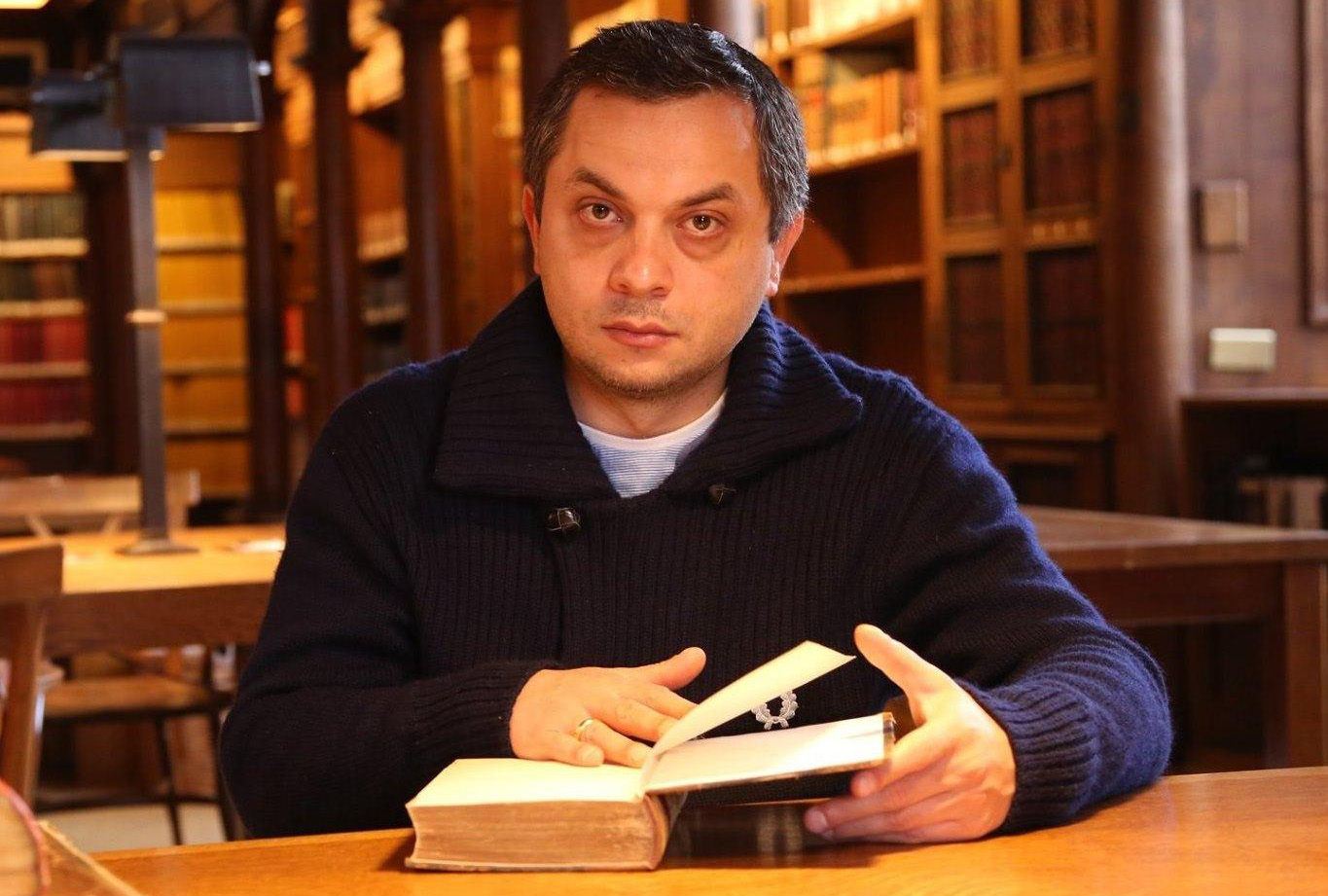
Forgotten Recent History: Causes of Society’s Immunodeficiency
Last December, the public opinion of Georgian citizens polarized once again over yet another issue. This time around, a sharp difference of opinions was triggered by a textbook of history, approved by the Ministry of Education for the ninth-grade school students. The disagreement centered on the characterization of the former prime minister, Bidzina Ivanishvili, evaluation of the rule of United National Movement, and description of the 2008 Russian aggression all provided in the textbook as part of assessment of the country’s recent history. It may sound paradoxical, but it is a fact that once the disagreement erupted, the pro-opposition segment of the society as well as the government members and their supporters focused their criticism on the lack of objectivity of the textbook. A Georgian Dream leader, Irakli Kobakhidze, even went so far as to recommend that the following edition of the history textbook refer to Georgia of the 2003-2012 period as the “harshest authoritarian regime.”[1]
A fuss kicked up about the history textbook continued a few days. However, all the quarrel and quibble subsided so that correct emphases and needed questions were rarely placed and raised. Messages getting across loud were motivated by individual political interests, while talks about the necessity to assess and research the recent history in an objective way were heard from only a couple of historians and few individuals interested in the events that took place in Georgia over the course of past 30 years. An objective study into the mentioned period of the country’s history is, however, not only interesting from a scientific point of view, but is also of critical importance for building a strong and developed state.
At least half of Georgia’s population must clearly remember what the life was like in the 1990s; how dire the consequences of inciting civil confrontation which may easily degrade into a war could be; what it means to live in the conditions of chaos and lawlessness when even a small-time crook could always be right if he sports a Kalashnikov supplied by the enemy. A larger segment of society must also vividly remember the 2000s with its positive and negative sides, while almost all adults must have, at least, a general idea of what the past 10 years have proved to be for Georgia.
Unfortunately, this is not the case. Judging by recent events, one may assume that no one intends to undertake an objective assessment of history in the foreseeable future. It seems that none of the masters of a situation wants the recent history of Georgia to be studied objectively, assessed in an unbiased manner and then, thought to others. Quite the contrary, numerous factors indicate that the main aim of the government is to rewrite/falsify the history so as to discredit those groups and individuals whom it deems undesirable and do so even to the detriment of state and public interests.
In the absence of a proper study into the country’s recent history, the knowledge about it is, usually, replaced by a mix of recollections of older generation, myths, rumors and disinformation. In such a reality it becomes virtually impossible to objectively assess the past and draw out necessary conclusions for the future. Such a state of affairs significantly weakens the immunity of citizens and potential political leaders from younger generation to disinformation, propaganda and various political manipulations. This was once again proved by a heated debate that sparked over the content of particular fragments from the history textbook. An extremely low level of knowledge of the country’s recent history led to the rift within the society and turned it into a victim of political manipulations once again.
The excerpt from the aforementioned textbook reads: “In January 2004, the population of Georgia elected Mikheil Saakashvili as the President of Georgia. The new government managed to combat corruption. Reforms were implemented in almost all spheres (police, court system, education, etc.). Crime bosses suffered a severe blow. On the pretext of fighting corruption and contraband, the Ergneti market was closed down which impeded the development of Georgian-Ossetian relations. There were deviations too: alongside a successful fight against corruption, arbitrary arrests began, and on the pretext of fighting crime, several killings took place.”
On the face of it, objectivity is observed in the text - the progress achieved after 2003 is noted and the problems with the rule of law are highlighted; however, it’s not as simple as that. The final part of the text – “arbitrary arrests began, and on the pretext of fighting crime, several killings took place” – radically changes the content and purposefully distorts the history of Georgia of the past 30 years. It creates an impression that before the Rose Revolution, the situation in terms of rule of law and human rights was satisfactory in the country and “arbitrary arrests” and “killings” began only after the change in power. One can boldly say that the ninth-grade history textbook turns schoolchildren and the people who are not supplied with objective information in any possible way into the victims of disinformation and propaganda which aims to discredit political groups that are unfavorable for the government and falsify the history according to political interests of the government.
In reality, “arbitrary arrests” and “killings” have been a chronic problem in Georgia. A report of the US Department of State, evaluating human rights practices in post-Soviet states in 2002, reads that in Georgia: “Security forces continued to torture, beat, and otherwise abuse detainees. Corruption in law enforcement agencies was pervasive. NGOs also blamed several deaths in custody on physical abuse, torture, or inhumane and life-threatening prison conditions. Arbitrary arrest and detention remained a problem.”[2]
Thus, the history textbook authors and Ministry of Education accuse the government of Rose Revolution of starting something that existed well before that and even in far more despicable forms. In other words, the aforementioned problem did not emerge after the Rose Revolution but improved a little after it; however, as the order was established, in general, in the country after the Rose Revolution, society started to pay attention to it. There are numerous issues which the government of Georgia of the 2004-2012 period may be criticized for, but the assertion that the problems with the rule of law emerged after the Rose Revolution is, to put it mildly, wide of the mark. Such presentation of the issue serves the only purpose of distracting people’s attention away from the current reality which, under the Georgian Dream government, is deplorable in terms of rule of law and democracy. This reality is regularly highlighted in reports of international organizations and opinions of partners and expert.
The above cited excerpt from the textbook distorts the fact of closure of Ergneti market too. The proposition that the closure of Ergneti market impeded the development of Georgian-Ossetian relations echoes the evaluation of certain interest-groups. No reliable study has been conducted into this issue in Georgia. Incorporating non-evidence-based proposition in a school textbook is academically unjustified. With regard to the Ergenti market, the textbook totally ignores the scale of contraband and crime associated with that market too. Smuggled goods at the Ergneti market cost the state budget tens and perhaps, millions of lari in lost revenues. Moreover, an organized crime associated with the Ergneti market posed serious challenges to the civil order and safety.
Considering the above said, it is apparent that the mode of researching and teaching history is nowhere near the scientific method and that the ruling party views history as a means of manipulating, discrediting political opponents and falsifying the past. This holds particularly true when it comes to the recent history of the country, which plays a crucial role in the formation of citizen’s identity, values and attitudes.
Such attitude towards the past will inevitably inflict damage on society. A proof of this is the propaganda of declaratively “patriotic” but, in reality, pro-Russian groups. These groups claim that the main reason of Russia’s aggression in Georgia is our country’s Euro-Atlantic aspiration. Consequently, to stop this aggression, Georgia needs to turn its back on the Western course and allow Russia to build its military bases in the territory of Georgia. According to the pro-Kremlin groups, if we do so, Russia will satisfy its interests and no longer have a reason to display aggression against Georgia. This insidious propaganda narrative, repeated over and over again, has influence on a certain segment of uninformed citizens. The knowledge of events having unfolded in 1991-1992 would suffice to debunk the propaganda of similar type. Those were the years when Georgia had yet to determine its foreign policy course. Even more, by that time Georgia had not even been a UN member state. Russian military bases still operated in Vaziani, Akhalkalaki, Gonio and Gudauta. Nevertheless, those Russian bases supplied weapons to criminals who then provoked the civil war and toppled the lawful government. Months later of those events, a war broke out in Abkhazia according to the Russian scenario again and scattered Georgians had to fight against Russian armed forces. Furthermore, the government lost control over the Tskhinvali region and that also happened not without a direct involvement of Russia. Moscow staged all this against Georgia at the time when Russia had several military bases in the country while many in Georgia did not have a slightest idea of what kind of foreign policy should the state pursue. Consequently, it is clear that the key aim of Russia was to deprive Georgia of any possibility to develop and to gain a total control over the country. Had citizens possessed the knowledge about that and other periods of history, they would have developed a strong immunity against the propaganda of the Kremlin-funded or so called pro-Russian groups.
This is precisely the main purpose of knowing and properly learning the recent history. When the past is objectively assessed and correct conclusions are drawn, it helps citizens develop resistance to disinformation or propaganda and enables them to build a better state. Unfortunately, in our particular case, the recent history is used to serve narrow partisan interests. This attitude to history must change if we want the Georgian state and society to develop. Otherwise, we risk facing a situation in future which may be worse than the situation of the infamous 1990s. I believe that Georgia possesses sufficient intellectual and political resources to make such change. The question, however, is whether or not we have the will to do that.



